MercoPress. South Atlantic News Agency
Tag: Birdlife
-
Monday, November 13th 2023 - 20:34 UTC
Gentoo penguins: Dive, forage, love? Fitter penguins dive deeper
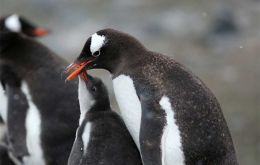
Sarah McComb Turbitt, marine biologist from the University of British Columbia illustrates us with a new study published in Marine Ecology Progress Series, from Dr. Marie Auger-Méthé, principal investigator and associate professor at the University of British Columbia’s Department of Statistics and Institute for the Oceans and Fisheries (IOF). The article interesting enough refers Gentoo penguins in the Falkland Islands.
-
Tuesday, April 28th 2020 - 15:35 UTC
New research shows sustainable fishing and conservation can coexist
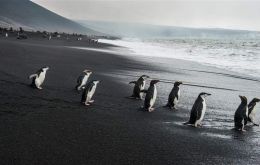
By surfbirds (*) – Our oceans are in trouble. Globally, poor fishing practices are directly damaging to marine wildlife, and overfishing can deplete food resources for animals such as seabirds and seals. However, research by BirdLife's Marine Program, in association with scientists from the British Antarctic Survey, (BAS) and the RSPB (BirdLife in the UK), shows that under current climate conditions, sustainable fisheries can exist alongside conservation measures for seabirds and seals in a well-managed Marine Protected Area.
-
Tuesday, December 26th 2017 - 09:23 UTC
Antipodean Albatross in breeding crisis; Falklands' Black-browed surveys show numbers are increasing
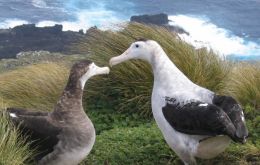
Antipodean Albatrosses court for years, mate for life and work together to raise their young – but human activity is causing a sex ratio imbalance that is destroying their lifelong romance. This year, they have been uplisted to Endangered on the IUCN Red List due to worrying population declines.
-
Wednesday, August 8th 2012 - 06:57 UTC
Black-browed Albatross success in Falklands not reflected in South Georgia
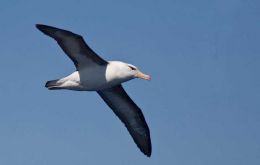
The July edition of the South Georgia Newsletter has an interesting comment on the recent announcement that the Falklands’ population of black-browed Albatross has seen a healthy increase in the number of breeding birds, information that has been submitted to BirdLife International for use in the Red List assessment process
-
Monday, June 27th 2011 - 16:17 UTC
Falklands, South Georgia success in minimizing long-line fishing seabird bycatch

A study has revealed that at least 160,000 and potentially in excess of 320,000 seabirds are killed annually in longline fisheries globally. Some previous studies have assessed the level of seabird by catching longline fisheries for particular regions and groups of seabirds, but this is the first study to provide a global estimate of by-catch of all seabirds in longline fisheries.
-
Thursday, July 29th 2010 - 05:36 UTC
UK Overseas Territories “fifth in world league table of bird extinctions”
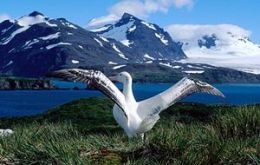
Put together the UK’s 16 Overseas Territories (including Falklands and South Georgia) are fifth in the world league table of bird extinctions, with at least ten species from the territories going to oblivion since 1500AD, partially or wholly because of the impact of non-native mammals, such as rats, feral cats, mice and pigs, according to BirdLife International site.
